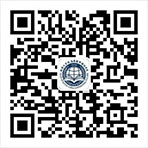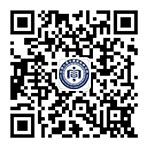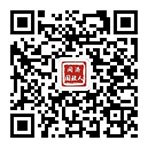
Hosted by the Institute for China & World Studies and the School of Political Science & International Relations (SPSIR) of Tongji University, the Tongji Serial Lectures on Social Sciences No.22 was successfully held online on the evening of April 27, 2020. Professor Wu Baiyi, Secretary of the Party Committee and Director of the Institute of European Studies (IES) at the Chinese Academy of Social Sciences (CASS), was invited to give a speech on the topic of "World Changes and China-EU Relations in a Changing World".
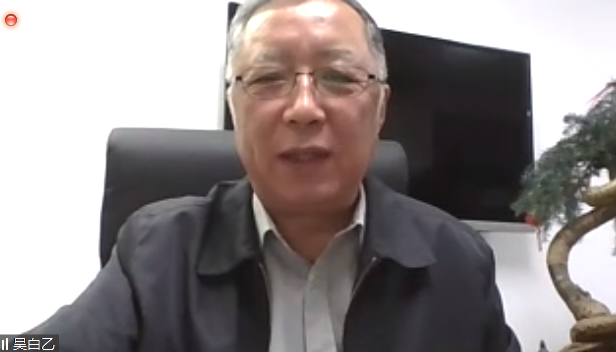
This lecture was presided over by Tongji Distinguished Professor Men Honghua, President of the Institute for China & World Studies, Dean of SPSIR, and Director of the Research Center for International Cyberspace Governance at Tongji University.
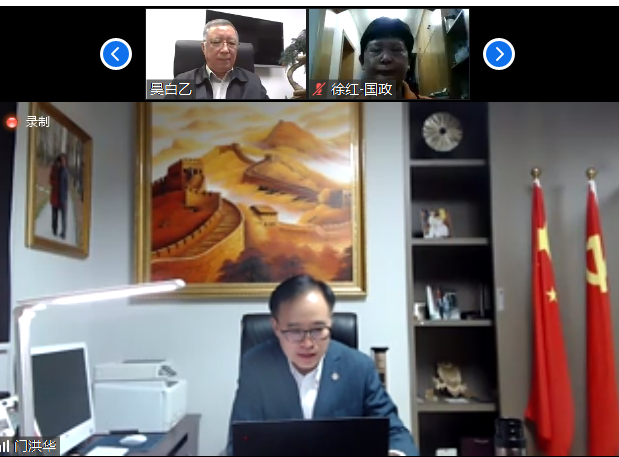
Based on his rich research experience and taking into account the changes in the domestic and international environment after the outbreak of the COVID-19 pandemic, Prof. Wu summarized the following characteristics of the current “turbulent” international situation. First, crisis is out of control. Human activities have been unprecedentedly restricted and economic activities have been hit hard. Second, "leadership" is absent. The international system built up after World War II is undergoing major changes, and the United States is losing its predominance. Third, state has returned. Affected by the pandemic, many existing international organizations and mechanisms have failed and the deep-seated problems of global governance are fully exposed. The pandemic is a test of capacity for state governance. Fourth, society is divided. Behind a new round of identity politics and conflict between parties in Europe and the US is the revival of anti-intellectualism in recent years. Fifth, the future remains unclear. Mankind is still exploring the way to eliminate COVID-19, making the prospects for global economy in the post-pandemic era uncertain.
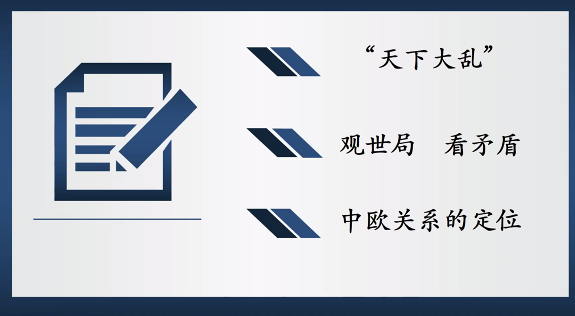
Prof. Wu believed that the pandemic may bring structural and systemic changes to the world pattern. He saw through the surface to analyze the fundamental contradictions from the following five aspects. The first is the limit of the growth paradigm. The serious debt problem is testing the sustainability of global economic growth, and the global industrial chain after the outbreak of COVID-19 is facing adjustment. The second is the boundary of technology. No major breakthroughs have been made at the level of basic human theory, and the development of technology has hit a bottleneck, while the technology control and competition among countries is becoming increasingly fierce. The third is the dilemma of governance. The absence of core leadership in the international community will make public goods more scarce, which will outdate the core mechanisms of global governance. The fourth is the bottom line of humanity. Due to the unrestricted development activities in the past, mankind is now subject to the revenge of nature. Technological progress has also made human dignity and privacy more affected than ever. The fifth is moral order. The response to the pandemic is testing people’s moral choices for life, health and economic activities. Excessive freedom of speech online is amplifying the risk of social disorder at the spiritual level, and the redefinition of national interests by various countries is also affecting the future international order.
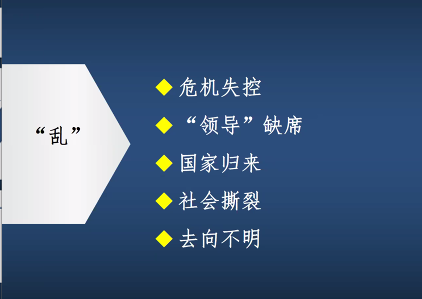
Prof. Wu used specific data and charts to demonstrate the importance of China-EU relations in terms of trade, technology patents, investment, tourism and international student exchange programs. In terms of trade, China-Europe trade has been showing an upward trend since the 21st century. Especially since the 2009 European debt crisis, the bilateral trade has seen tremendous growth. In terms of technology, Europe is China’s most important source of technology, second only to the US. And after the US launched a large-scale high-tech blockade on China, the importance of Europe has become particularly prominent. In terms of investment, the stock of Chinese investment in Europe has increased by 5 times from 2010 to 2018, and investment flows have also increased year by year, making China a major investor in Europe. Finally, Prof. Wu cited data on international student exchange programs and tourism to display the close ties between China and EU in multiple aspects including politics, economy, technology and culture.
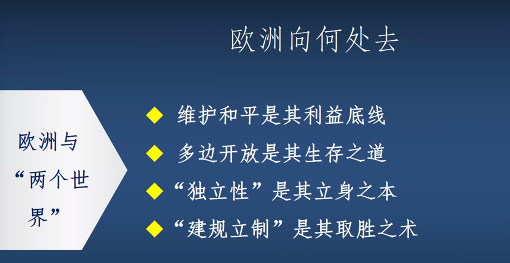
Then, Prof. Wu made an in-depth analysis of China-EU relations around the theme of “Europe & Two Worlds”. Currently, the US is planning to decouple from China, which has caused trouble to China’s strategy of opening up to the West that has been implemented for years. If China fails to adjust its Europe strategy during this period and let Europe fully lean to the US, a new Cold War that the US expects may occur and there will be a “Two Worlds” pattern: China leads emerging market countries vs. the US leads Western capitalist countries. Prof. Wu summarized the current attributes of Europe: first, maintaining peace is its bottom line of interests; second, multilateralism and openness is its way of survival; third, "independence" is the foundation of its existence; and finally, "building rules and institutions" is its winning strategy.
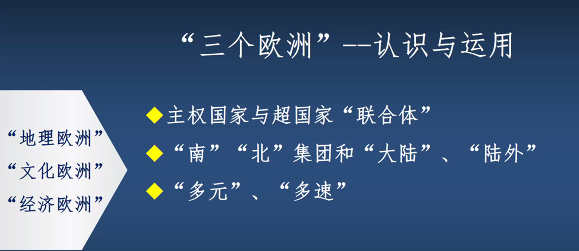
Prof. Wu then analyzed Europe from geography, culture and economy to fully demonstrate the value of multi-perspective study of Europe. In terms of geography, Europe is an integration of sovereign states and supranational "commonwealth"; it can also be divided into South and North blocs or the Continent and the Islands. In terms of culture, Europe is a multicultural continent home to a mix of cultures and religions including Muslim, Slavic and Christian. In terms of economy, Europe is "multi-speed". Under the framework of European integration, differentiated economic forms can be seen in Europe, where a "pie-sharing" approach is adopted to pull Europe’s less developed economies or small and medium developing economies after transformation into the EU for common development. However, due to lack of inner motivation, these economies have begun to seek diversified development.
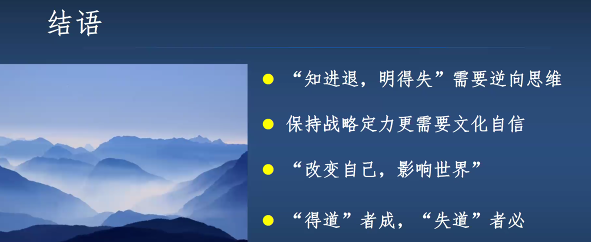
Finally, Prof. Wu summed up several principles that we should adhere to at present. First, we should be adept at reverse thinking to know where we stand and what our gain and loss are. Second, we should maintain strategic focus and be confident in our own culture. Third, we should change ourselves before influencing the world. Fourth,a just cause enjoys abundant support while an unjust cause finds little support.
Prof. Zheng Chunrong, Associate Dean of SPSIR, made a wonderful comment on this lecture. Afterwards, Prof. Wu carefully answered students’ questions about China-CEE cooperation, the impact of COVID-19 on the process of European integration and China-EU cooperation, and the trilateral relations among China, the US and Europe. The lecture came to a successful conclusion in a lively atmosphere.




